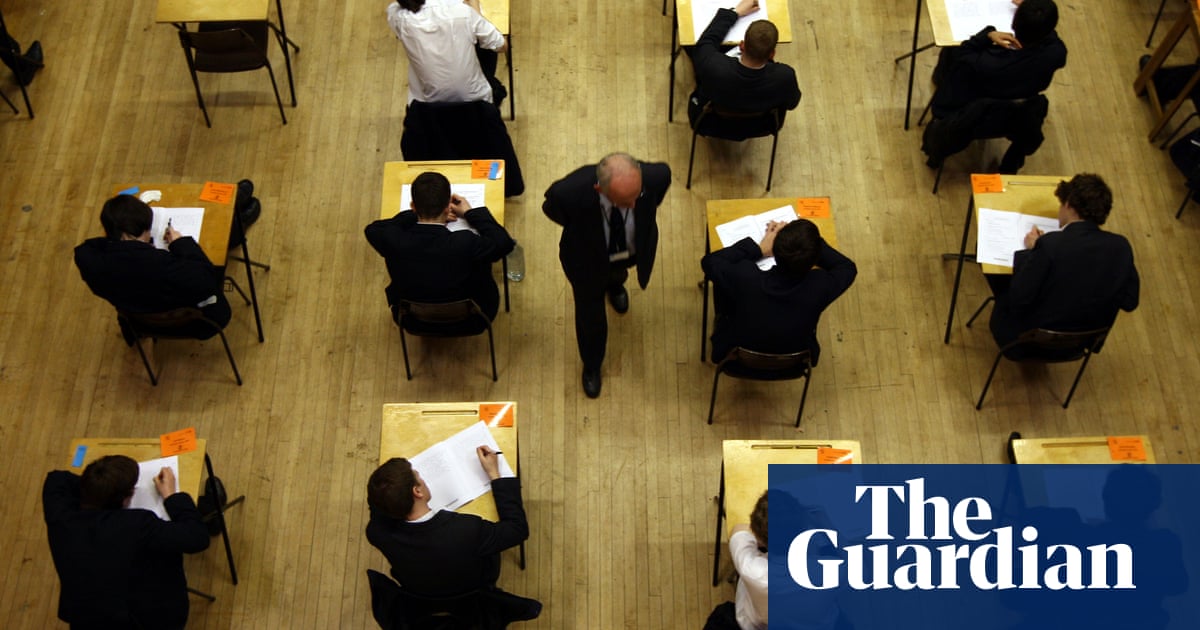Photo credit: www.theguardian.com
Labour’s Curriculum Review Proposes Changes to GCSE Exams and the English Baccalaureate
Pupil assessments are set to undergo significant changes, as Labour’s comprehensive curriculum review suggests that students should undertake fewer GCSE exams. Additionally, the English Baccalaureate, launched during Michael Gove’s tenure as education secretary, may be on the chopping block according to the review’s initial findings.
An interim report released on Tuesday presented a detailed overview of the review’s progress, revealing that primary school assessments, including Sats, will remain in place. This decision comes despite considerable pushback from parents and educators who have called for a reassessment of standardized testing.
The review emphasizes the need for a more diverse and inclusive curriculum, ensuring that all children can see themselves represented in educational materials. Key areas of focus will now include digital and media literacy, as well as sustainability and climate science, acknowledging the necessity of preparing students for contemporary challenges.
Another notable focus of the review is the incorporation of practical knowledge and skills into the curriculum. This includes essential topics such as financial literacy, job readiness, interview techniques, problem-solving initiatives, and public speaking skills, all driven by feedback from students and parents alike.
The national curriculum and assessment review, initiated by Education Secretary Bridget Phillipson shortly after Labour’s general election victory last summer, is central to the party’s educational reforms. An extensive call for evidence garnered approximately 7,000 responses, and a final report is expected to provide recommendations to ministers in the upcoming autumn.
Although the review acknowledges the importance of maintaining high academic standards and a knowledge-focused curriculum, Prof. Becky Francis, who leads the panel, highlighted that the current system does not adequately support all students. This is especially true for those from disadvantaged backgrounds and students with special educational needs.
Phillipson expressed her support for the progress made by the review team, emphasizing the need to update the curriculum to align with modern educational demands. “We must preserve what is effective while evolving areas that are not serving our students well. Primary assessment is undeniably critical for maintaining and enhancing educational standards for all children,” she stated.
On the topic of GCSEs, the review panel is exploring strategies to reduce the overall assessment burden on students. This initiative comes in response to growing concerns regarding student stress and its adverse effects on mental well-being, while still ensuring reliable academic outcomes.
Typically, students in England face between 24 and 31 exams by the end of secondary education, a number comparable to Singapore but significantly higher than most other leading educational systems worldwide.
Further, the report aims to address concerns surrounding the breadth of content in GCSE subjects, which can often lead to a “teaching to the test” approach, although it does not propose reducing the number of subjects that students take. Additionally, the panel is reevaluating the policies concerning resitting maths and English GCSEs, which frequently result in repeated failures, and is contemplating alternative pathways for students.
In response to the interim findings, Laura Trott, the shadow education secretary, cautioned that the proposed changes indicate a regression to a “soft bigotry of low expectations,” asserting that the resulting qualifications could lack rigor and credibility.
The review’s stance on the English Baccalaureate—originally intended to enhance access to a robust academic curriculum—has raised concerns regarding its impact on student choice, particularly affecting their ability to engage with vocational and arts subjects. The report noted, “While the intention behind the Ebacc should be acknowledged, we must assess whether it remains the best vehicle for achieving inclusive academic access.”
Paul Whiteman, general secretary of the National Association of Head Teachers (NAHT), welcomed the review’s acknowledgment of multiple issues, including the negative implications of the Ebacc, the overwhelming number of GCSE assessments, and the inadequate resit policy. However, he also voiced disappointment over the decision to retain Sats for primary school pupils.
Source
www.theguardian.com

